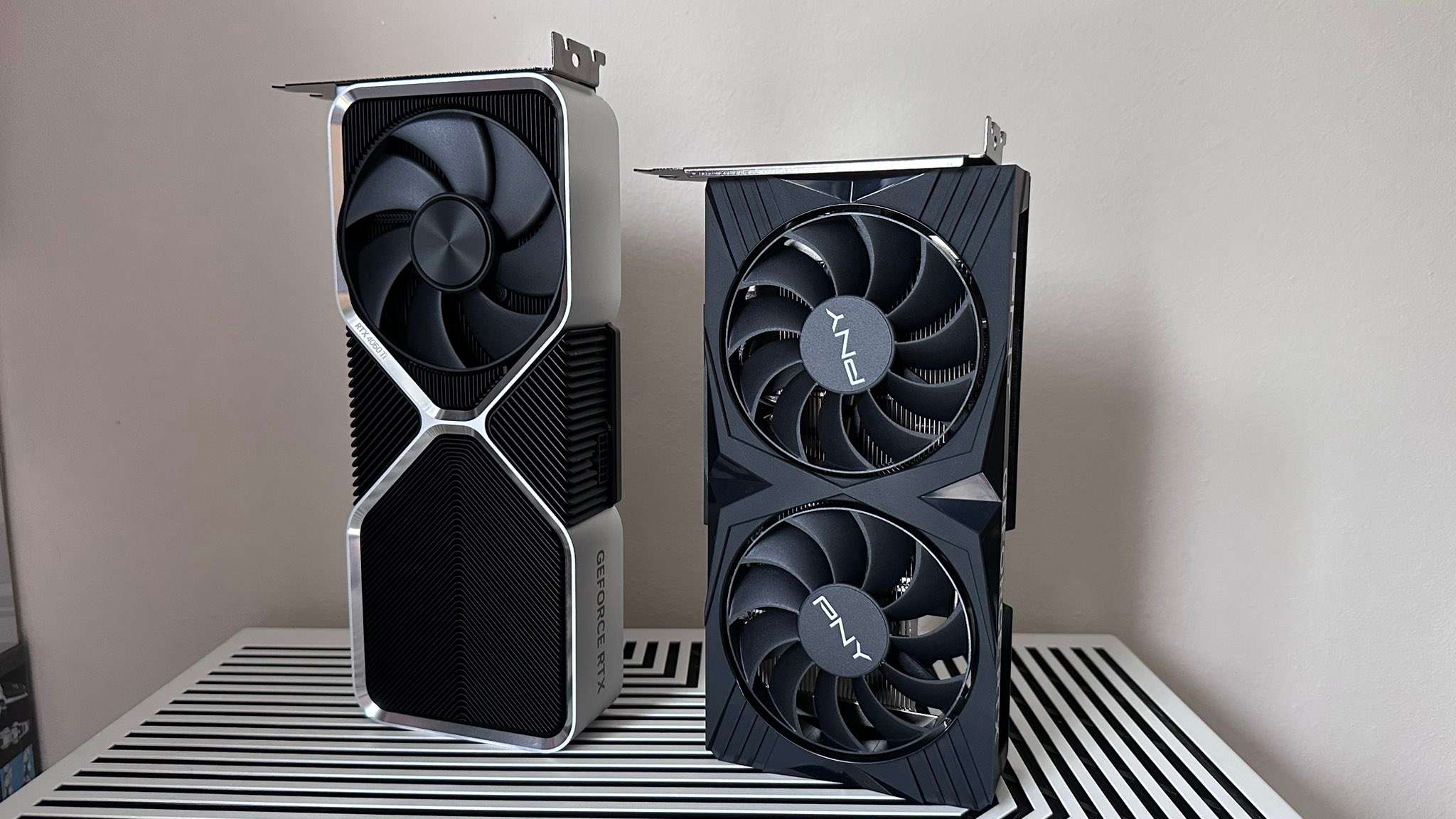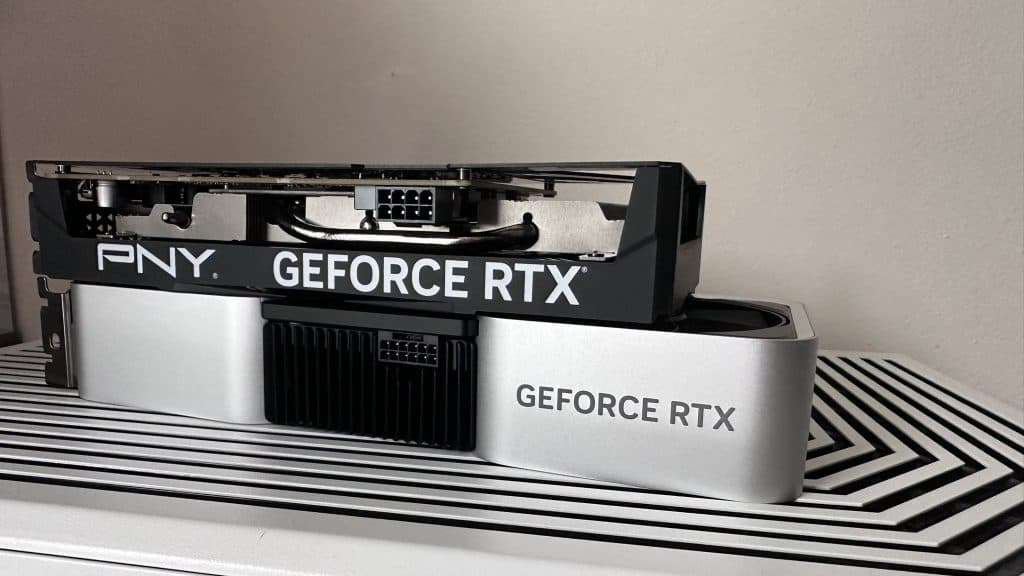Nvidia RTX 4060 vs RTX 4060 Ti: Which should you buy?
 Dexerto
Dexerto Are you after a new graphics card but don’t want to break the bank? We’ve tested two of Nvidia’s offerings to tell you which one is the best value.
The RTX 4060 is finally here, and we’ve tested it in our gauntlet of benchmarks to see how much performance you can squeeze out of it when compared to its RTX 4060 Ti sibling. Both GPUs have more differences under the hood than you might imagine, and we’ve put both against each other to tell you which one you should purchase.
But, before we get into that, it’s important to note who the RTX 4060 series is for in the first place. If you are looking for heaps of 4K performance, you might want to turn your eyes toward the more powerful graphics cards in the lineup. However, for those of you looking for a GPU that performs well in esports titles at modest resolutions like 1080p and 1440p, which one of these new GPUs should you pick? We dive deep.
RTX 4060 vs 4060 Ti: Specifications
| GPU | Nvidia RTX 4060 | Nvidia RTX 4060 Ti |
| CUDA cores | 3072 | 4352 |
| Boost clock | 2460 MHz | 2535 MHz |
| Memory | 8GB GDDR6 | 8GB GDDR6X |
| TGP | 115W | 160W |
| Release date | June 28, 2023 | May 23, 2023 |
| MSRP | $299 | $399 |
On paper, the RTX 4060 Ti has stronger specs all around, from a higher CUDA core count to boost clock and even better memory. But, the performance difference between the two graphics cards is fairly standard, when comparing them both. Additionally, both graphics cards sport incredible efficiency, meaning that you won’t really have to shell out for a brand-new power supply to ensure that they run well, unlike the higher-end options like the RTX 4080 and 4090.
One thing to note is that whatever GPU you pick, you will be left with just 8GB of VRAM between both, though the throughput of the RTX 4060 Ti is slightly better thanks to fast GDDR6X modules. To patch this up somewhat, Nvidia has also expanded the L2 cache of both GPUs. Though, modern titles with massive, unoptimized textures might run into some issues when trying to play games at higher resolutions.
Additionally, both GPUs use different dies. The RTX 4060 uses the further cut-down AD107, versus the RTX 4060 Ti’s AD106. However, both GPUs make use of a PCIe 4.0 x8 lane, meaning that you don’t really need the full bandwidth of an x16 slot to ensure they are running optimally.
RTX 4060 vs 4060 Ti: Price
 Dexerto
Dexerto The RTX 4060 is cheaper than the RTX 4060 Ti by $100, at just $299. This is an extremely competitive price and offers the best value in the RTX 40-series stack outside of the behemoth RTX 4090. Additionally, the RTX 4060 cuts its price compared to its older-gen sibling, but you also get all of the benefits of additional bells and whistles like DLSS 3 frame generation to take on demanding titles like Cyberpunk 2077.
The issue we have with the RTX 4060 Ti is that it should really offer more VRAM at $400, but that’s resigned to a more expensive model. That’s why we think the RTX 4060 is the much better option here, and the one that you should be spending your cash on.
RTX 4060 vs 4060 Ti: Performance
The RTX 4060 Ti is 20% faster than the RTX 4060 in most benchmarks. These GPUs were tested in a number of titles and synthetic benchmarks, like 3DMark’s testing suite. Pure rasterized performance and ray-traced performance scaled incredibly similarly, too.
1440p benchmarks
| Game | RTX 4060 | RTX 4060 Ti 8GB |
| Forza Horizon 5 (Ultra, RT & DLSS off) | 123 FPS | 129 FPS |
| Cyberpunk 2077 (Ultra, RT Ultra, DLSS 3 Performance, Frame Generation / FSR) | 96 FPS | 110 FPS |
| Cyberpunk 2077 (Ultra, RT Ultra, DLSS off) | 34 FPS | 41 FPS |
| CS:GO (High, Dust 2) | 493 FPS | 583 FPS |
| Overwatch 2 (Ultra) | 269 FPS | 372 FPS |
Both the RTX 4060 and 4060 Ti manage to perform admirably at 1440p, though both get enhanced performance through DLSS 3’s frame-generation features. For esports, however, both graphics cards manage to deliver incredibly impressive performance. Once again, in rasterization workloads, the difference between the GPUs is minimal in-game.
1080p benchmarks
| Game | PNY RTX 4060 | RTX 4060 Ti 8GB |
| Forza Horizon 5 (Ultra, RT & DLSS off) | 104 FPS | 108 FPS |
| Cyberpunk 2077 (Ultra, RT Ultra, DLSS 3 Performance, Frame Generation / FSR) | 60 FPS | 67 FPS |
| Cyberpunk 2077 (Ultra, RT Ultra, DLSS off) | 21 FPS | 32 FPS |
| CS:GO (High, Dust 2) | 301 FPS | 384 FPS |
| Overwatch 2 (Ultra) | 184 FPS | 234 FPS |
At both 1080p and 1440p, you should expect relatively similar performance between the two graphics cards. Though, for 100% cheaper, you are only taking a 20% hit in performance across all titles. Though, the difference is incredibly slim in titles like Forza Horizon 5, which is a pure rasterization benchmark.
Synthetic benchmarks
| GeForce RTX 4060 | GeForce RTX 4060 Ti 8GB | |
| Time Spy Extreme | 5287 | 6231 |
| Port Royal | 6002 | 7777 |
| Speed Way | 2535 | 3112 |
In 3DMark’s suite of synthetic benchmarks, we can observe a 21% difference in performance between the GPUs. The gap widens in the RT-heavy Port Royal benchmark to 25%, however, which could be down to the lesser CUDA core count on the RTX 4060. Interestingly, the inverse occurs in purely rasterized workloads here, with a slim 16% difference in Time Spy Extreme.
Which one should you buy?
If you are looking for a 1080p and solid 1440p performer, the RTX 4060 is the better buy when compared to the 4060 Ti, despite being 20% weaker overall. Pure rasterization workloads between the GPUs are closer according to our suite of benchmarks. So, why waste that extra $100 for marginally better performance? If you are looking for the best value GPU, the RTX 4060 is the clear winner, and the better all-round GPU.
If you click on a product link on this page we may earn a small affiliate commission.



